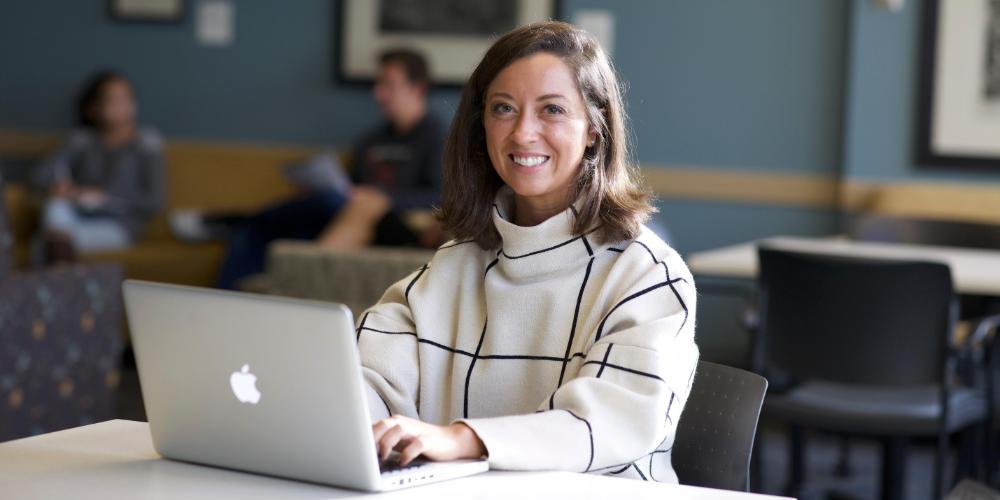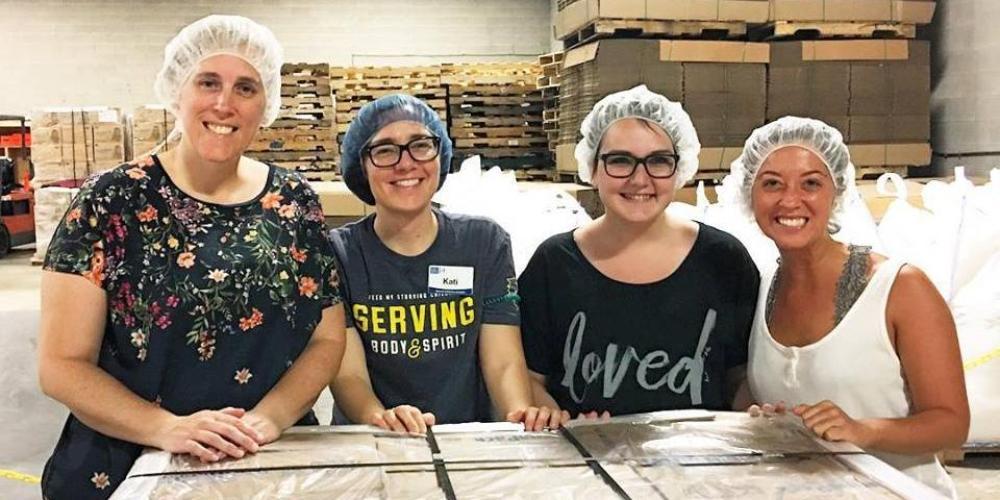October 17, 2018
This blog features stories about the Wheaton College Graduate School. In this post, Dyer Bowers, a current M.A. in Humanitarian and Disaster Leadership student, shares her reflections on recent headlines about immigration and refugees, and speaks about the importance of matching a passion to help with the right qualifications.

From Commitment to Qualification
The other day, my professor simulated what felt like an impossible scenario: an as-yet uncontained oil spill in a region that has lost cell-phone service and power. He assigned our class to come up with a strategy to address this problem with the tools and training we are gaining here in the M.A. in Humanitarian and Disaster Leadership program. The scenario not only reminds me of the devastating natural disasters occurring here and abroad, it also reminds me of the recent headlines about the Moria refugee camp in Greece, where I was volunteering shortly before coming to Wheaton. Thousands of people at Moria are in serious danger due to problems with overpopulation and security, and waste and sewage management issues.
I wonder, If I had stayed there, would I have actually known what to do? I see the problem, my heart is filled with passion, and now I am working on becoming a part of the solution.
Ever since my World Race team volunteered at the Moria refugee camp in Greece, headlines about refugees have had a very personal meaning for me. This past month, the news about the proposed cut to the refugee admissions cap – from 45,000 to 30,000 – has been weighing heavily on my mind, and has been a major topic of conversation in my classes in the M.A. in Humanitarian and Disaster Leadership program.
In our visit to the local World Relief offices, we discussed how the refugee admission cap has been steadily, and now drastically, been declining since the events of 9/11, 2001. This cap is set yearly in the month of October.
Before the 9/11 tragedy, it was set at 200,000, but following 9/11, the Bush administration decreased the number to 70-80,000. The Obama administration maintained a number around, or even a bit higher than this range. But with the current administration, this number has severely diminished, from 50,000 in 2017, to 45,000 in 2018, to a proposed 30,000 for 2019.
As the cap gets lower and as more and more government offices and positions in the field of refugee and asylum advocacy continue to disappear, the actual number of refugee admissions is going to keep plummeting. As offices close and face new limitations, how can NGOs, especially Christian ones, advocate for changes in policy, increased admission, and better processes?
Many Christians, who see a consistent pattern of God choosing, taking, and loving an unwanted people in the narrative of Scripture, naturally feel their hearts well up with a strong desire to act on behalf of those who are unwanted and in danger. They are right. We need to advocate for refugees. But are we - am I - prepared for the work?

(Something I can do right now is volunteer with my classmates at the local Feed My Starving Children location!)
In our class on NGO Leadership we’ve been talking about how important it is to match passion with qualifications. Having "a heart" for an issue is a wonderful place to start, but do I actually have the tools I need to make the change? This M.A. program, for me, is a way of obtaining those qualifications (and I am even thinking about what could be next—perhaps even law school!).
Theology professor and affiliated HDI faculty member Dr. George Kalantzis, said something to our group that has really stuck with me:
“I cannot do anything else now, knowing what I know.”
Neither can I.
-Dyer Bowers with Hannah Hempstead
The M.A. in Humanitarian & Disaster Leadership (HDL) at Wheaton College is designed to prepare the next generation of humanitarian and disaster professionals to lead with faith and humility, utilize evidence-based practice, and serve the vulnerable and the church. Find out more information about the M.A. program here.